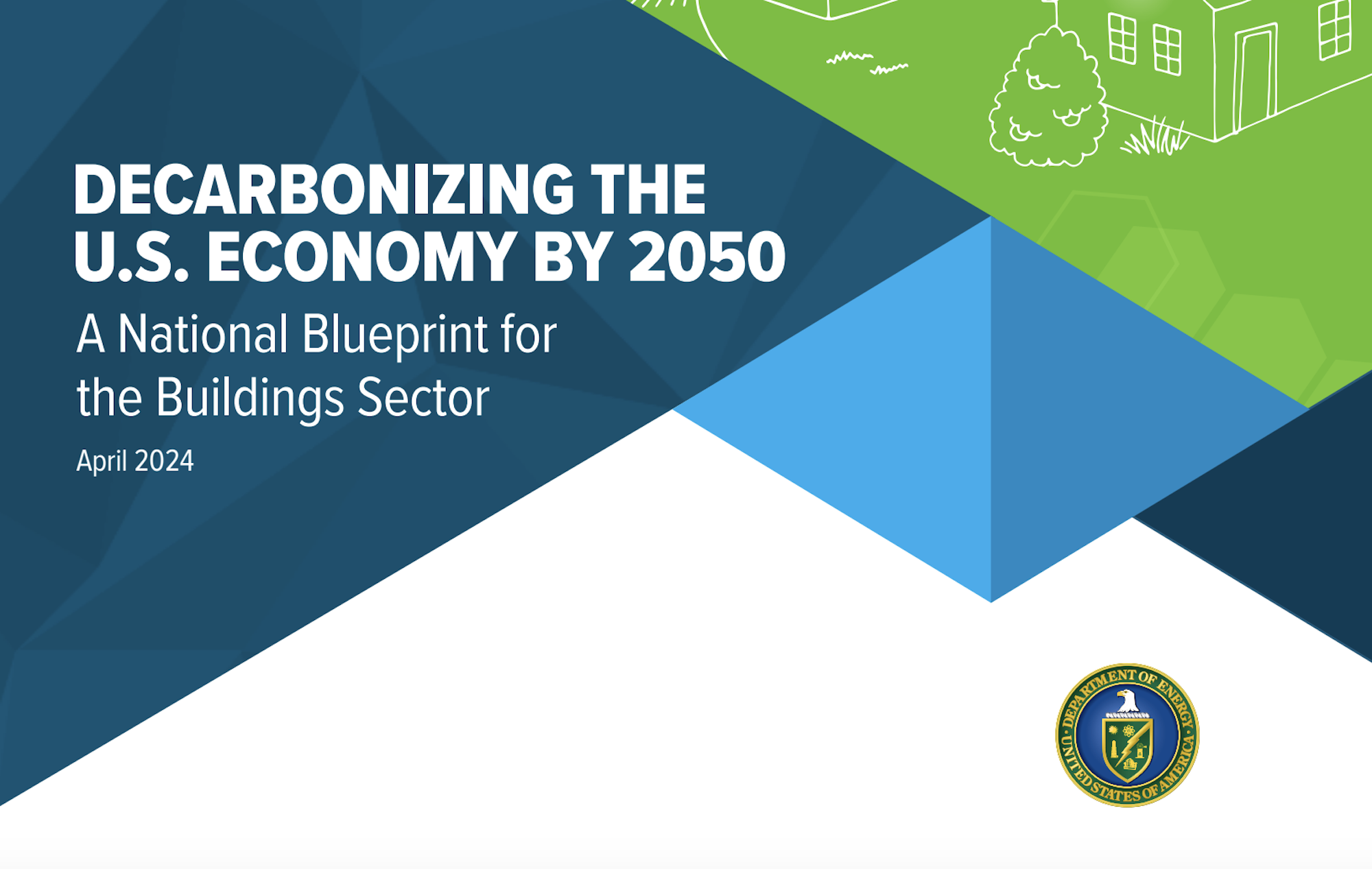The Biden Administration recently released “Decarbonizing the U.S. Economy by 2050: A National Blueprint for the Buildings Sector,” a comprehensive plan to reduce greenhouse-gas (GHG) emissions from buildings by 65% by 2035 and 90% by 2050.
The Blueprint is the first sector-wide strategy for building decarbonization developed by the federal government. It outlines ways to reduce energy in homes, schools, and workplaces.
To reach the emissions reduction targets for the buildings sector, the Blueprint sets four strategic objectives:
• Increasing building energy efficiency
• Accelerating onsite emissions reductions
• Transforming the interactions between buildings and the electricity grid
• Minimizing the emissions from producing, transporting, installing, and disposing of building materials
Each objective has specific performance targets and market, policy, and technology milestones to reach by 2035 and 2050. Meeting these targets will require accelerated deployment of a wide range of decarbonization and energy efficiency technologies. The Blueprint outlines coordinated federal actions that can increase the speed and scale of solutions deployments. Those actions include funding research and development to develop lower-cost technologies, expanding markets for low-carbon technologies, providing direct funding and financing, and supporting the development and implementation of emissions-reducing building codes and appliance standards.
The Department of Energy, a key player in the administration’s decarbonization drive, is focused on building innovations in three pivotal areas: building upgrades, efficient electrification, and smart controls.
Related Stories
| Jun 27, 2013
AGC urges Congress, Obama to reject caps on construction workers in immigration legislation
The unemployment rate in the construction sector in May was the lowest it has been in five years, which could signal a coming worker shortage, according to the Associated General Contractors of America.
| Jun 27, 2013
California legislators make push for prevailing wage law
California lawmakers introduced new legislation that would cut off state construction funds from charter cities that don’t mandate the equivalent of union-scale wages on public-works projects. Of the 482 cities in California, 121 are charter cities.
| Jun 27, 2013
Thermal, solar control designs can impact cooling loads by 200%, heating loads by 30%
Underestimating thermal bridging can greatly undermine a building’s performance contributing to heating load variances of up to 30% and cooling load variances of up to 200%, says the MMM Group.
| Jun 27, 2013
U.S. Conference of Mayors passes new sustainability resolutions
The U.S. Conference of Mayors (USCM) passed a slate of sustainability resolutions that renew its commitment to local green building and clean energy efforts.
| Jun 19, 2013
NSF Sustainability begins verifying EPDs that can be used for LEED V4
NSF Sustainability has verified Environmental Product Declarations (EPDs) for nylon carpet styles and colors manufactured by Mannington Commercial and for J+J Flooring Group’s Kinetex® flooring product and Invision brand modular styles that use eKo® backing.
| Jun 19, 2013
Florida is latest battleground over LEED standards centered on certified wood
A nationwide battle over forest certification standards continues to be played out nationally and in Florida with legislation passed this month.
| Jun 19, 2013
Construction site safety improved in 2011
On-the-job construction fatalities dropped from 802 in 2010 to 781 in 2011, and recordable injuries fell from 4.7 per 100 workers in 2008 to 3.9 per 100 in 2011, according to data from the Bureau of Labor Statistics.
| Jun 19, 2013
New York City considers new construction standards for hospitals, multifamily buildings
Mayor Michael Bloomberg’s administration has proposed new building codes for hospitals and multifamily dwellings in New York City to help them be more resilient in the event of severe weather resulting from climate change.
| Jun 12, 2013
Green Globes update complies with federal sustainability standards
The Green Building Initiative has updated its green building certification program to comply with the U.S. government’s standards for sustainability in federal buildings.
| Jun 12, 2013
Green Globes update complies with sustainability standards
The Green Building Initiative has updated its green building certification program to comply with the U.S. government’s standards for sustainability in federal buildings.














